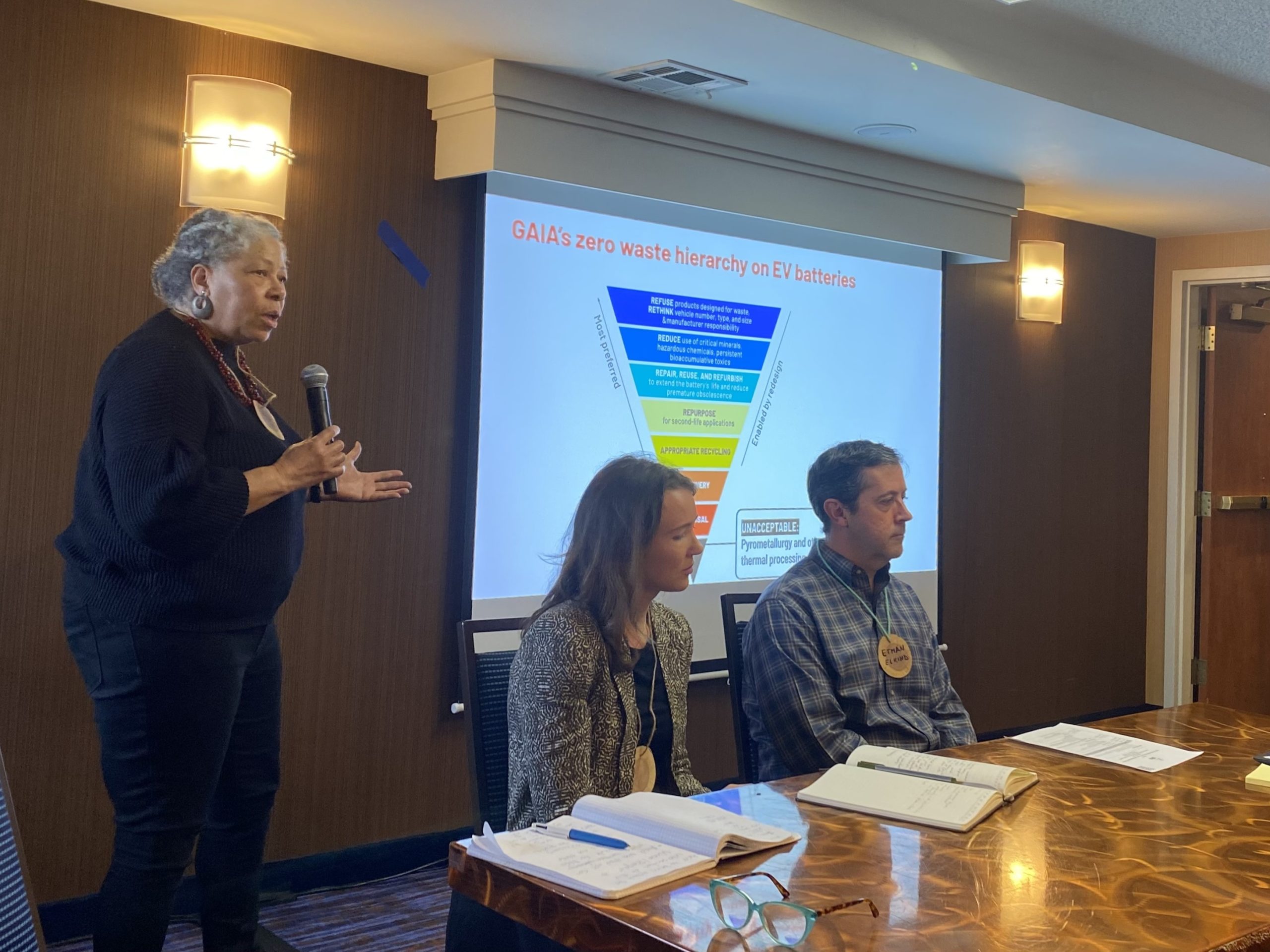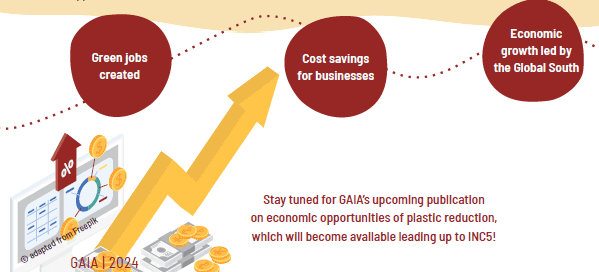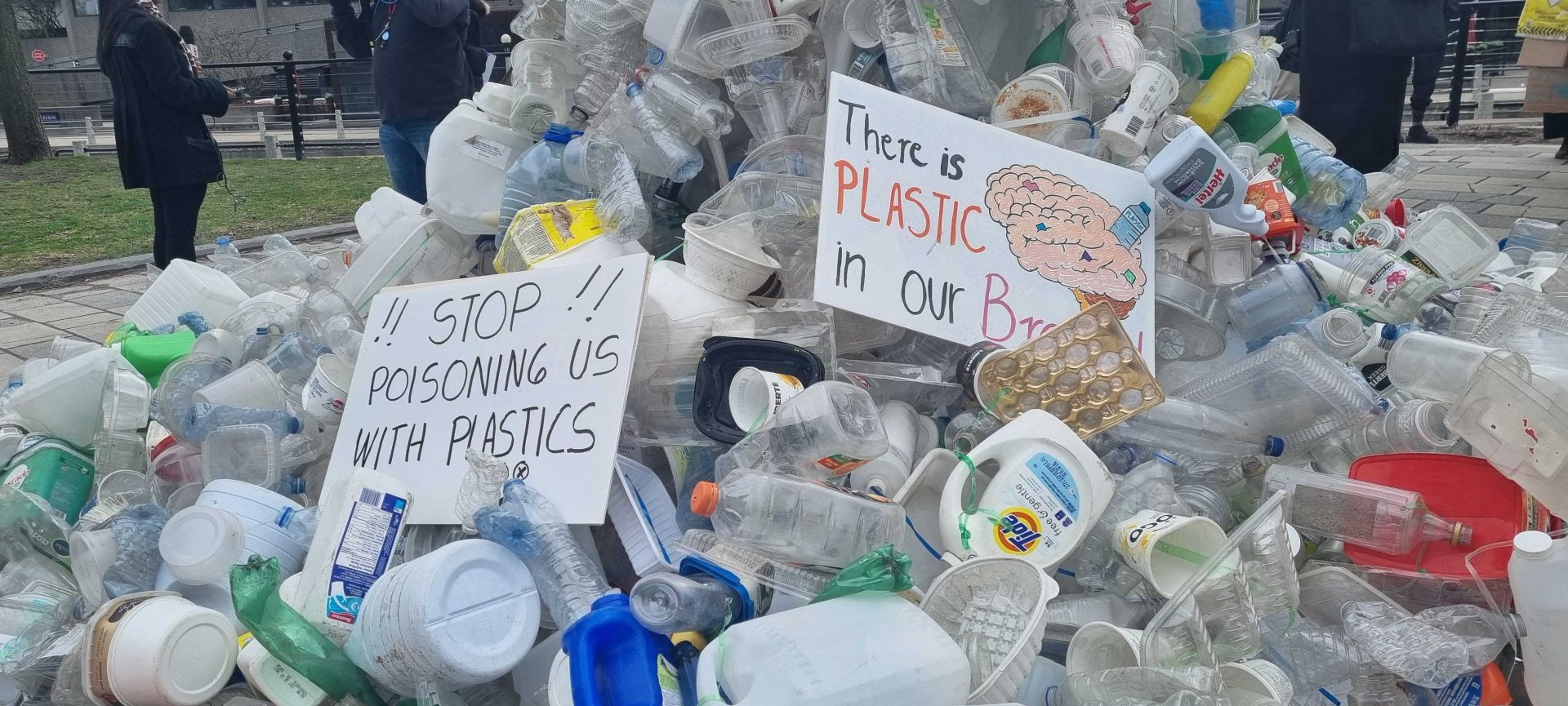INC-4 Day 4, April 26, 2024
Mid-Week Plenary: The Clock is Ticking
After days of slow progress in negotiations, tonight the dam seemed to break open. Many countries expressed their realization of how little time we have left to negotiate this critical, legally binding agreement to stop plastic pollution.
And, observers were finally given an opportunity to intervene and they came ready. A series of powerful interventions from Soledad Mella of the International Association of Waste Pickers, Rafael Eudes from Aliança Residuo Zero Brasil and GAIA, and Nina Azzahra of ECOTON Indonesia, Break Free From Plastic, and GAIA, culminated in a moving intervention by Janelle Nahmabin with Aamjiwnaang First Nation in so-called Canada about the state of emergency her Nation was forced to declare because of ongoing benzene discharges from a nearby industrial facility, during which dozens of comrades and relatives stood in solidarity behind her.
We’re hoping the delegates listened and heard what so many civil society observers have been saying for ages: plastic is pollution, it’s harming our communities and the environment, we need this binding treaty, and Member States have to act now.
Rwanda-Peru Speak Out for Plastic Reduction Targets
Rwanda and Peru were the visionaries behind the resolution that formed the basis of the mandate for a legally binding plastics treaty that covers the entire life cycle.
This partnership has once again provided an ambitious north star for the negotiations when late Thursday night, the two countries released a paper urging Member States to enshrine a global primary plastic polymer reduction target based on the available science, similar to the 1.5°C in the Paris Agreement. The countries put forward a 40% reduction by 2040 against a 2025 baseline, which by GAIA’s analysis would not be enough to avoid breaching the 1.5°C, but nevertheless is the first concrete proposal put forward by a Member State in the negotiations, which is worth celebrating.
The paper also proposes including a transparency framework for countries party to the treaty to accurately report on their progress towards this collective reduction goal. They also recommend a “start and strengthen” approach mirroring that of the most successful environmental treaties like the Montreal Protocol and Stockholm Convention. This means that the reduction target can be made more ambitious over time as new science and strategies become available.
On Friday evening GAIA had the opportunity to interview Yesica Fonseca Martinez, National Focal Point of the Peru delegation, who reinforced the country’s strong position on reduction: “We seek to regulate the reduction of primary plastic polymers, that plastics be regulated, and products of concern, and that chemicals are also regulated that are contained in the production process of plastics. All of this is designed to take care of the health of our citizens. And we expect Latin American countries to join us in this process.”
Contact:
Claire Arkin, Global Communications Lead
claire@no-burn.org | +1 973 444 4869
References:
- See GAIA’s youtube channel for all interviews
For more information about GAIA’s treaty advocacy, please visit no-burn.org/unea-plastics-treaty, follow us on X @gaianoburn, and read our Press kit.




























